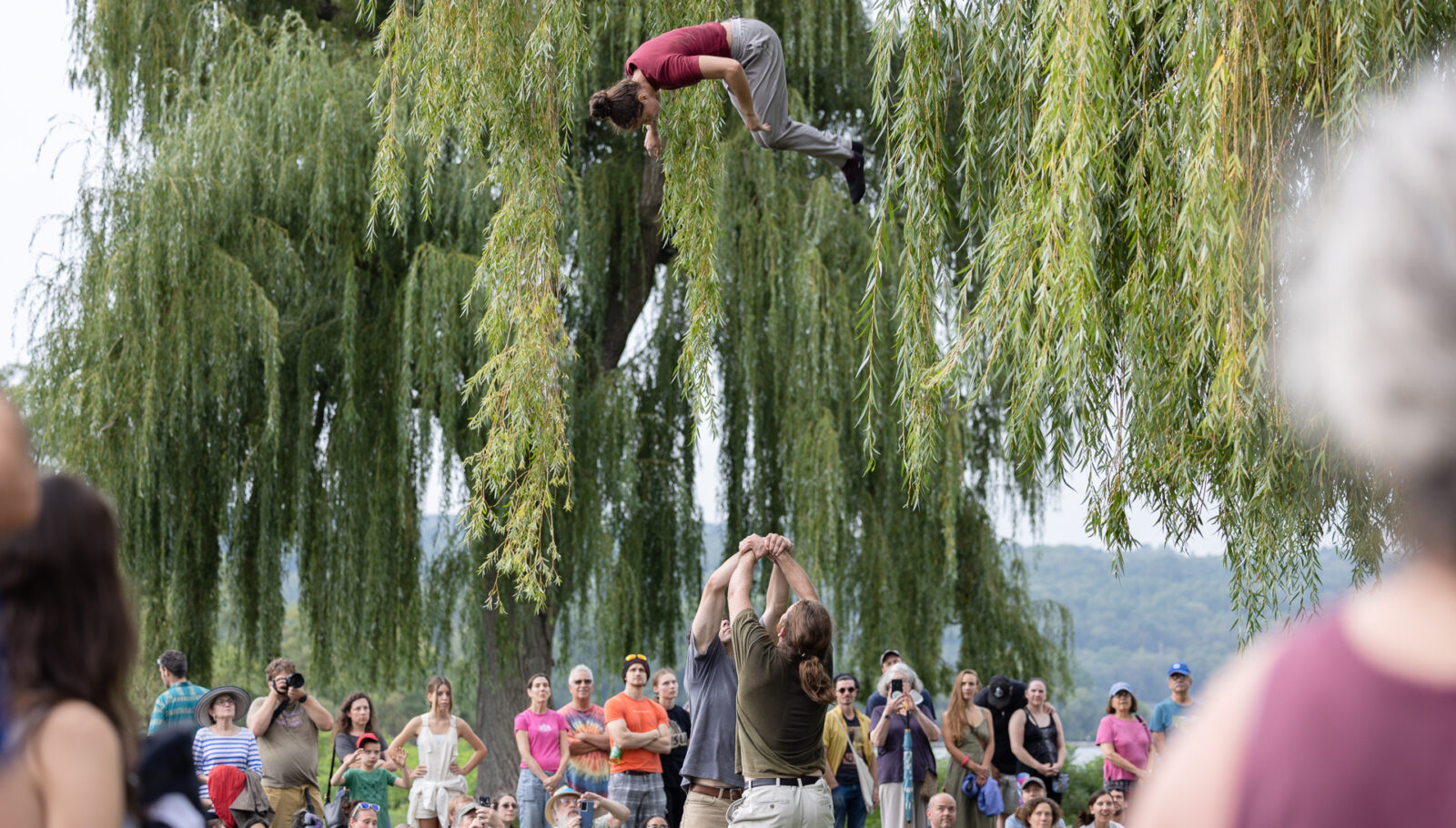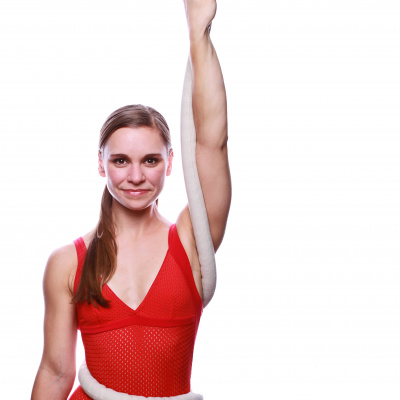Hupstate Circus Festival: For Circus By Circus! – Interview With Amy Cohen
In the US, Labor Day weekend always signals the end of summer and the beginning of fall routines. Vacationers get their last trips in, kids, parents and teachers prepare for the school year. This year, if you’re in the upstate New York area, you can jazz up your segue between seasons with circus! Ithaca-based Circus Culture presents Hupstate Circus Festival: a full weekend of performances, community chats, and classes from September 1 – 4. I was pleased to interview Amy Cohen, founder of Circus Culture about the festival and why bringing a circus to Ithaca is a splendid idea.
Madeline Hoak: Why a circus festival?!
Amy Cohen: A circus performance festival is a perfect way to expose our community (locally and circus-wise) to the diversity of what circus is and can be. I grew up learning circus from mentors with very varied circus perspectives–from original cast members of the Big Apple Circus to teeterboarders from Bulgaria. The richness of my mentors’ different approaches to circus and, despite this, their complete and utter unification as circus folk, truly shaped who I am as well as my excitement for the myriad of ways that circus exists.
As the founder of a circus school that is in a very small community, and someone who has a passion for (and Circademic interest in) looking at circus in the USA from a birds-eye view, it is really important to me to pay that forward by holding space for many different types of circus shows and artists to coexist. The more circus our community can experience, the more circus we can create, and the more possibilities that exist for the future of our beloved art form!
Madeline: How has the infrastructure you’ve built in Ithaca led to this moment in time?
Amy: Ithaca is also a beautiful place to visit. I’ve noticed year after year that artists and audiences who come to retreat here feel deeply connected to this place–the waterfalls, the community, the magic that forms in a small city isolated and left to find its own voice. Ithaca is a place that says YES! It’s fun to invite people to be here and soak it all in together. Having had nine years of bringing Circus Culture (the circus school I founded in 2015) to life in Ithaca has also led to strong relationships with local stakeholders. At this point we have gotten permits to do circus outside in almost every green space around, and we have active partnerships with local theater venues who are super supportive of the festival. The great thing about teaching circus to as many people as possible is that you end up with stakeholders that have experienced circusness directly–they get why circus matters experientially. This leads to people rooting for circus to blossom from every angle: city government, local schools, neighborhood, community organizations, and more. Maintaining and building these relationships has opened the door to bring the Hupstate Circus Festival to life.
Madeline: What sets Hupstate apart from other circus festivals? And, how does it contribute to/ fit into the ecosystem of festivals and US circus?
Amy: Hupstate is designed with two distinct groups of people in mind.
One: people who may not think of themselves as circus people (yet…) but they are ready! They may be locals, visiting Ithaca as a tourist, here for university, or want a quirky night out from the surrounding rural area. For those living in Ithaca either permanently or temporarily, it can sometimes feel like a very small town. It’s fun to create a “big city” happening via the festival, and I hope to make it feel like there is something unexpected and delightful around every corner–to find the perfect nexus of small-town community and big-city access to arts and culture.
Two: (and my passion for sure) is to really be by and for circus people. To create a true place for the circus community to gather and delight in each other. To celebrate each other’s work and play, to see what’s new, to celebrate what is tried and true, and to lean into each other to grow and change our art form while respecting our history.
Madeline: I see on the website that you’re arranging the schedule so that people can seealmost everything. Why is that important to you/ to the community/ for a circus festival?
Amy: I personally love going to circus festivals and seeing all of the circus I can in the shortest amount of time–really making a trip of it. Seeing all of your people in one weekend, and talking about circus day and night. You start to notice the trends, the themes, the differences, the influences, the way the art form ebbs and flows. You meet people in the lobby, on the street, and at the bar and talk about circus. Many of us THINK about circus all the time, but to have the opportunity to engage in community about the circus is a gift. I strongly believe that if we love circus, we need to watch it, make it, critique it, celebrate it, and bask in it together.
Practically speaking, whenever I go to a circus festival, I make a spreadsheet of everything happening and map my way through how to see it all. Especially when producing an event where you hope people travel to a fairly isolated location to see circus, it feels important to package everything by imagining the audience’s experience of showing up wanting to see it all. In my mind, who wouldn’t want to!
Madeline: What are you most excited about?
Amy: I’m most excited about the fact that our program is designed for people to dive into a full day of non-stop circus and community building that is supported by so many different venues and parks in the City of Ithaca. In a single day you can visit a waterfall, try circus skills, see free circus shows, take an acro workshop in nature, see a ticketed circus show, then see a circus cabaret at a beer garden… and all within a 3 mile bikeable radius.
Madeline: What should people considering coming know about?
Amy: Many of our shows will have ASL interpretation and all of our show venues are ADA-accessible. Lodging can be tricky to find on Labor Day weekend in Ithaca since it’s a popular time to visit, but we encourage you to look at HipCamp for quirky places to stay, to share hotel rooms downtown and support our local economy, and to keep looking at Airbnb for new options that pop up. We encourage community members who want to come but need some support to get here to email us at [email protected] and we will offer customized support. We have volunteer and ticket exchange options available, community care tickets priced at $15 for those in need, and are generally super excited to welcome as many people as possible to the fest.
Madeline: What else do you want the Circus Talk readership to know about?
Amy: When putting out the call for artists for the festival, we received 75 submissions! It’s a really exciting time for circus, and we are sincerely excited to have the opportunity to bring so many artists and audiences together this year.
For more information about the festival, please visit https://www.hupstatecircus.org/.
Main Image @Avi Pryntz-Nadworny...
Do you have a story to share? Submit your news story, article or press release.





